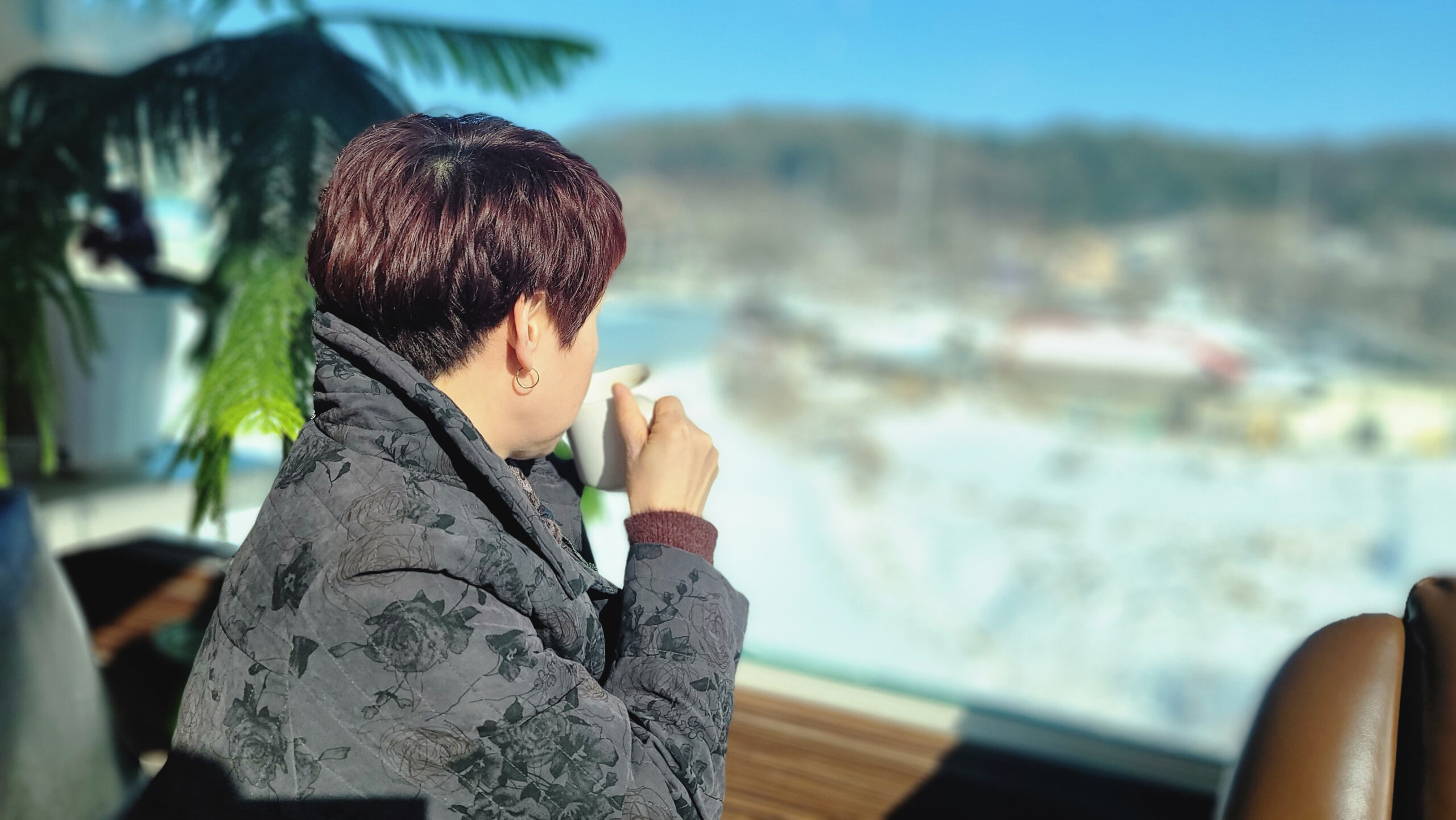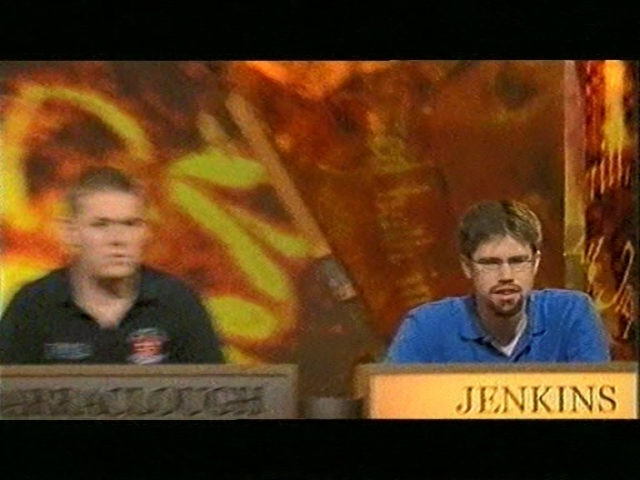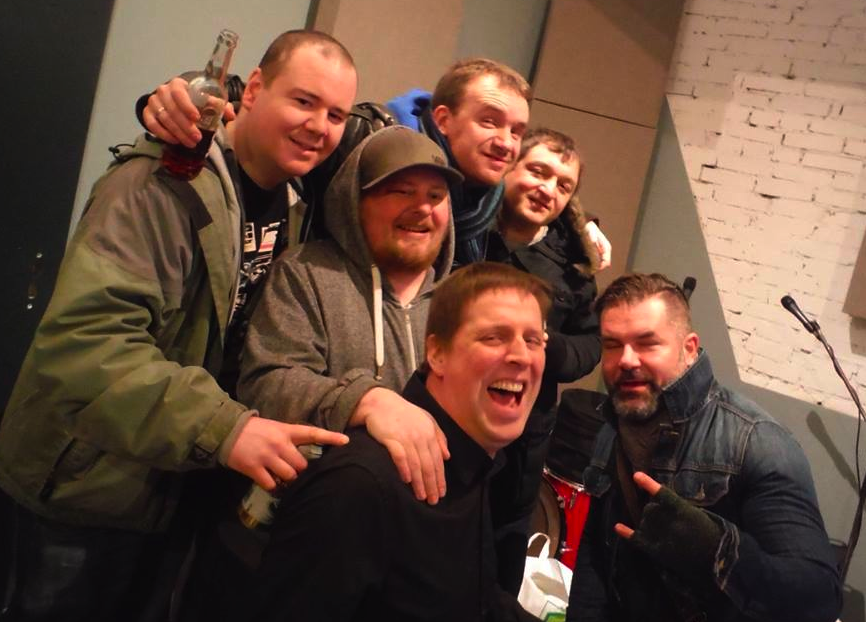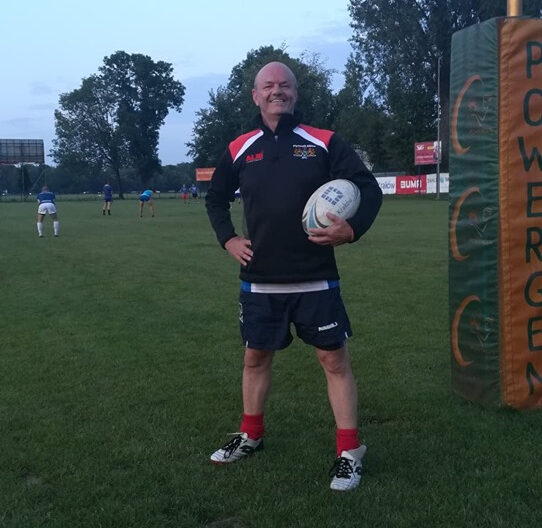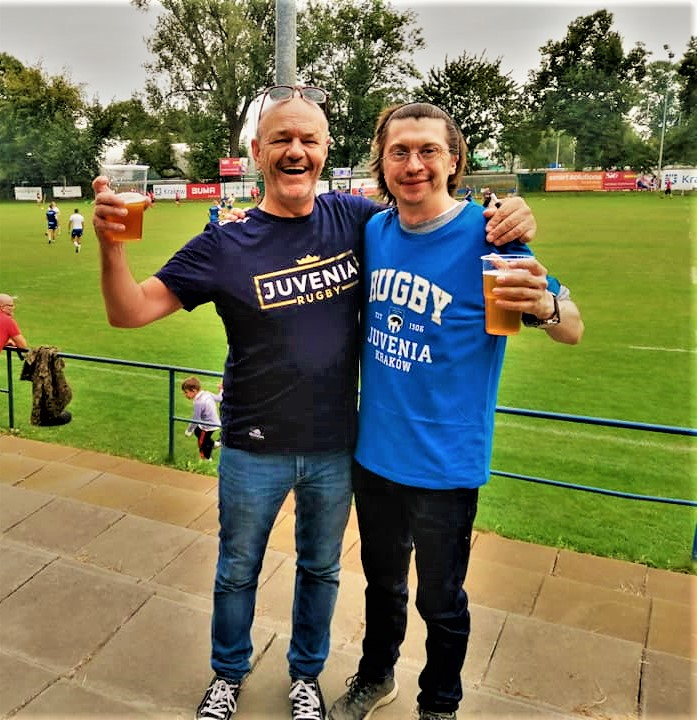Byeongnan (Blue Orchid) – Fulfilment in Fabric
Photos by Seongmin Jang (except for the three older ones)
My mother-in-law is a remarkable woman. While raising my wife and her two siblings after qualifying as a professional chef, she decided it was time to turn to her one true passion, painting. With the odds stacked against her success in a male-dominated scene, she kept on practising her art and eventually reached the status of “national artist”, a title conferred upon the very best proponents of the discipline in South Korea. Carving out a niche for herself by opting to paint on fabric, she has opened a successful art school and shop, “Nema Art”, in the centre of her hometown in the mountains, Jecheon. Artistically, she is known as “Byeongnan”, which means “Blue Orchid”. A big thank you to my wife, Dora, for interpreting!
TM: Can you remember when you first became interested in art?
BN: When I was young, children didn’t have any toys. We didn’t even have any paper. Nature was the only thing we had, so I used a sharp stone to draw people, trees, birds…anything I saw…on the ground. It was the most natural thing in the world for me. I always wanted to make something pretty. Like many of the other kids, I used to collect sweetcorn husks, because they were easy to shape into other things.
At school, I started to get textbooks. No matter what the subject was, I cut the pictures out to help me practise drawing. I joined the school art class later on, but I only owned seven coloured pencils. Even though the other kids had more colours to work with, it was my work that the teacher really praised. That made me think I might have some talent.
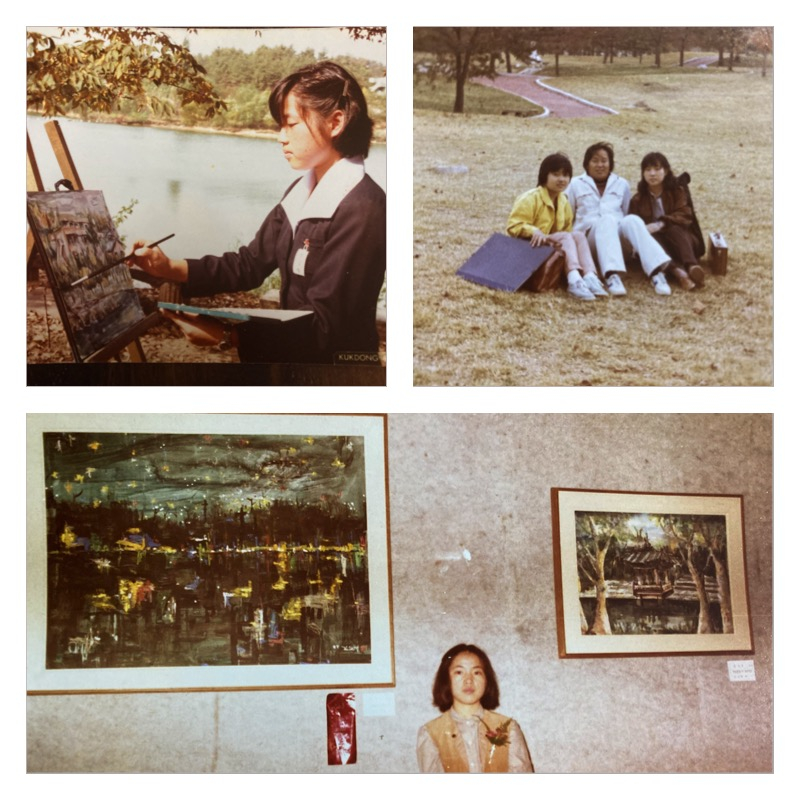
TM: What a wonderful illustration of how a teacher can inspire you! You also qualified as a chef, the benefits of which I’m lucky enough to enjoy whenever I come to South Korea. What made you decide on a career in painting instead?
BN: I decided to train as a chef because I wanted to earn more money for the family. It was also a bit of a trend amongst other homemakers at the time. I managed to pass the cooking exam very quickly, but it just didn’t feel like it was what I was meant to be doing in life, so I quit.
I remembered what my art teacher had said to me in high school. Actually, it wasn’t a normal high school. It was a school connected to the fabric company that would become Samsung, where we worked all day on the factory floor and studied at night. In any case, Mr. Kim was very keen for me to study art at university and even offered to pay for the first year out of his own pocket. It was a wonderful gesture, but I wondered what I would do after the first year was over. I would also have had to find the money to pay for all of the art supplies. That money wasn’t there.
Mr. Kim had supported me as much as he could when I was at school, but I had to think about supporting my family. I had to earn money and contribute.
TM: Sounds like it was a tough decision and a big sacrifice to make. What were the biggest challenges you had to face in becoming an artist? Did you always believe in your ability? What kept you going?
BN: Not having a university degree was the biggest obstacle. People really look down on you here if you don’t have one. On top of that, not having an art degree. Most artists in South Korea study art at university, including pretty much all of those who have become famous and influential.
My way of overcoming this prejudice was through the “National Artist” competitions. Even though I had specialised in Western art at school, I was forced to compete in the Korean art category, because I couldn’t afford the art supplies I would have needed for the Western category. All I needed for Korean art was the colour black.
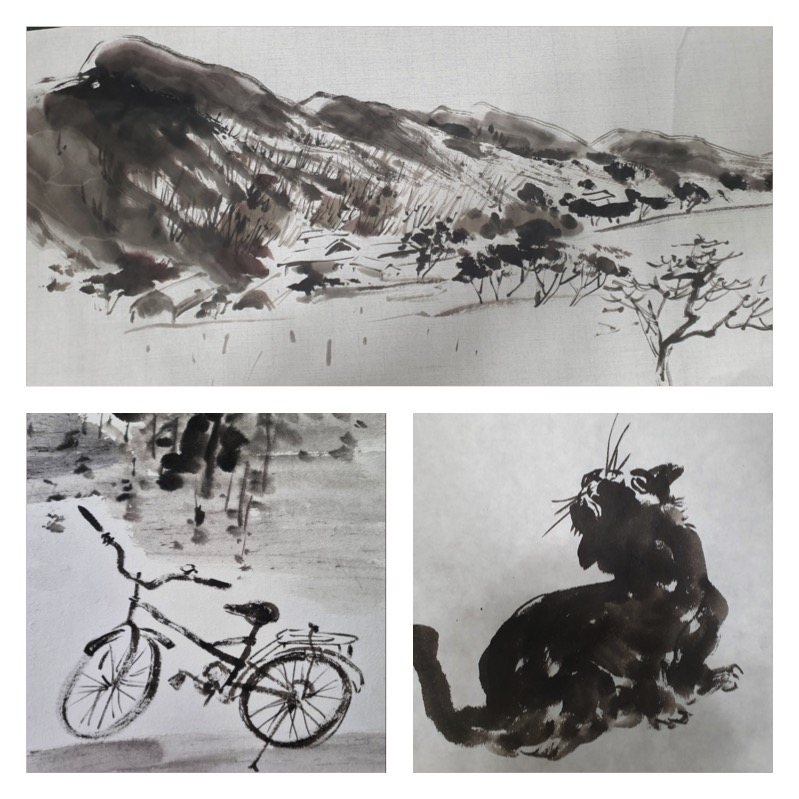
I put all my effort and focus into becoming a national artist. I thought that would mean nobody could look down on me any more. It took fifteen years of really hard work, but I finally achieved my dream. The National Artist card I now possess means I can go to all the most famous museums in the world for free.
Having said that, I still get paid less than other artists with degrees when speaking at events. The prejudice is still there and it’s really hard to overcome. Sometimes I think I should get an art degree myself, but then I think it doesn’t make sense. I’ve already reached a higher standard than the one required for it, and it doesn’t matter to me what other people think.
TM: You do a wide variety of artwork. What is your favourite medium to work in and what is the project you have enjoyed the most so far?
BN: I like working on cotton and silk the best with a combination of ink sticks and any other brushes and colours I have to hand. The texture of cotton allows me to express many things with my ink stick that I can’t express on paper. Silk is wonderfully soft and the way the colour spreads on it fascinates me. Cotton is the fabric of common people, but silk is the fabric of the elite. I want to bring out the beauty in both.
Using an ink stick on cotton brought me pleasure, but it didn’t get much of a reaction from others. However, I had seen some very interesting work on fabric in Insadong in Seoul, which got me interested in the technique. Then I saw some linen scarves on sale for a great price in a Daegu market, so I decided to buy forty, paint them and sell them at an event I hosted for my students. They sold really quickly. It was the first time I had actually made money from art I had created. That was a big confidence boost!
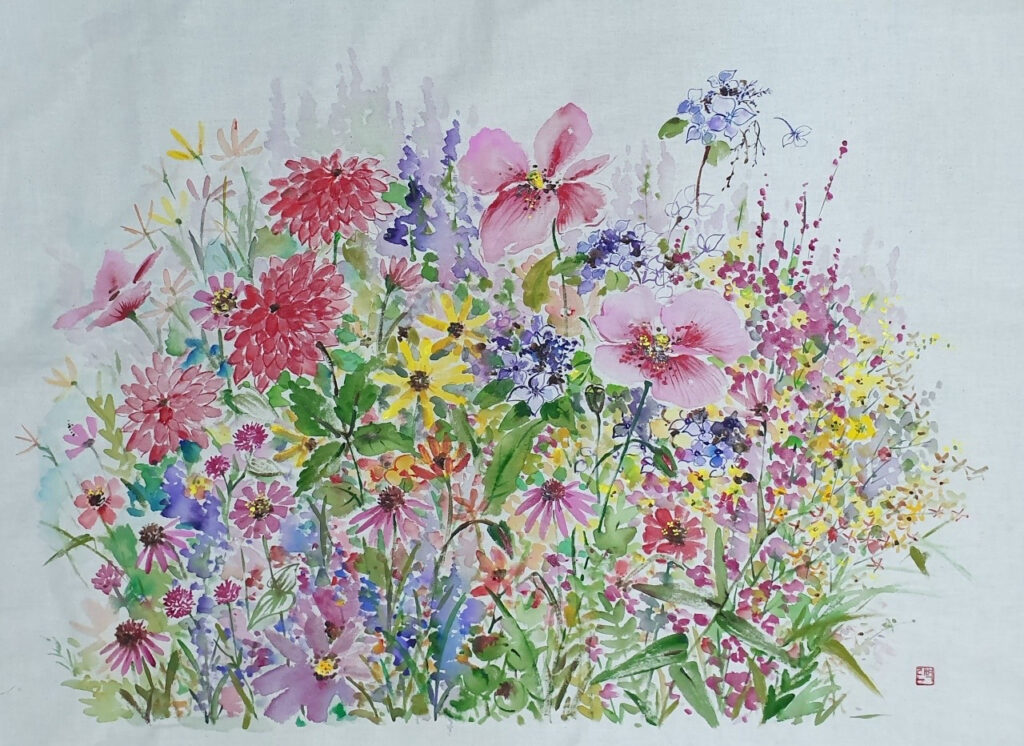
With the money I earned, I experimented on a lot of different fabrics, sometimes successfully and sometimes not. When my experiments were successful, I was able to sell them. Now I was making money from my art, I realised I needed a shop. My brother had just come back from China and was available to work and the ground floor below my school had been vacated, so things worked out perfectly.
The new shop needed curtains and this was the first chance I had to work on something so large. The whole process of decorating them worked like a dream and I was delighted with the results. After so much experimentation, to be able to produce something so perfectly first time made me truly believe this was what I was supposed to be doing. Curtains remain my most common order to this day and attract new customers to the shop, so this is the project I will always remember with the greatest satisfaction.
TM: As well as creating art, you are also a teacher. What achievement by one of your students makes you the most proud?
BN: Several of my students have won regional competitions, so I feel like I have done a good job teaching them. Unfortunately, however, none of them are prepared to commit to doing art as more than just a hobby. Nevertheless, they have shared the praise they have received from their children with me for what they have achieved, so I am happy to hear about the joy it has brought to their families.
TM: Looking to the future, what would you like to achieve as an artist? Perhaps you would like to have an international exhibition?
BN: Yes, very much so. Firstly, I would like to do some live art in front of a large audience using bold brush strokes. Then I would like to have an exhibition in Seoul dedicated to my work, so my art could reach a wider range of people. If this helped me to get an international exhibition later, I would be delighted. That kind of exposure would allow me to focus solely on my own art.
TM: The best of luck with that! Thank you for your time.
BN: You’re welcome!
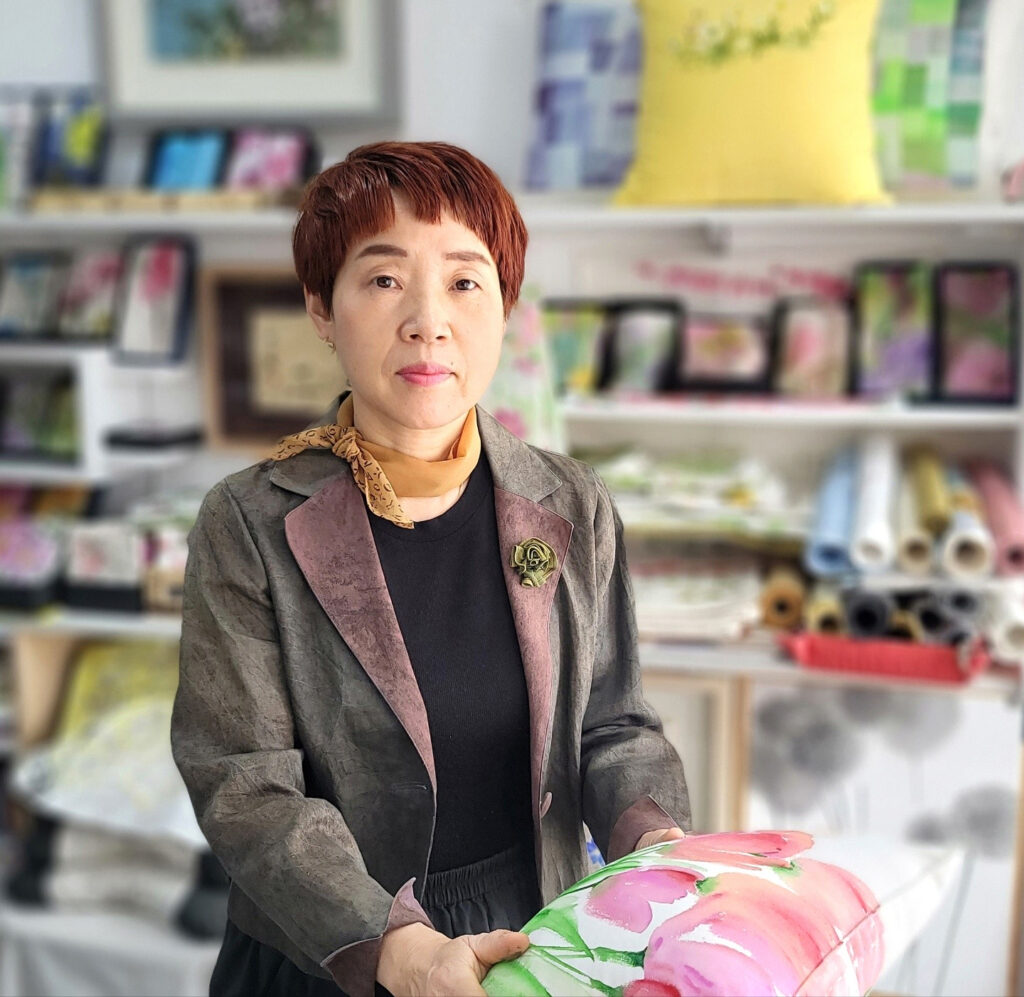
Where next?
Read about Mark, who’s helping to grow rugby in Poland.
Steve’s mission to support local bands in Poznan and Teesside.
